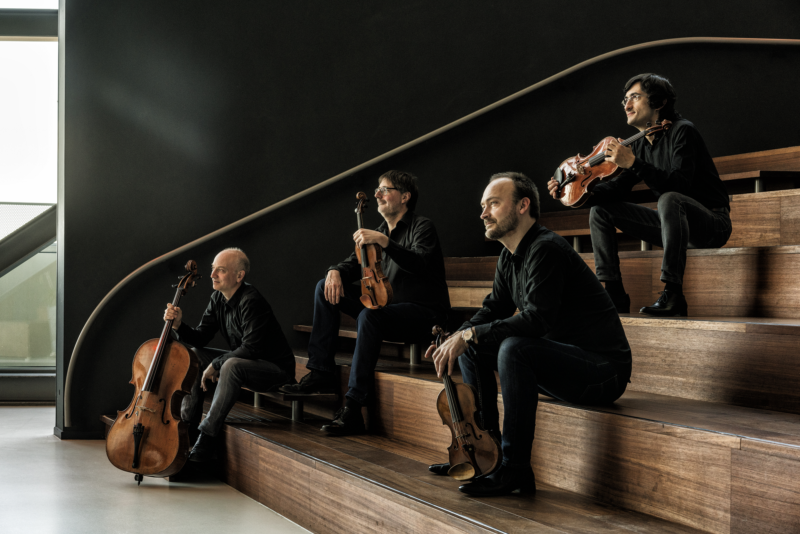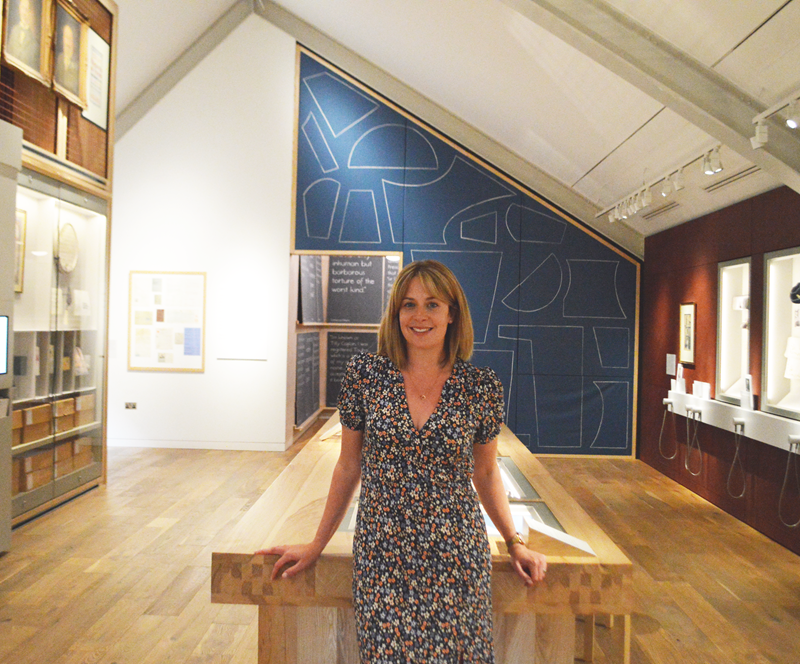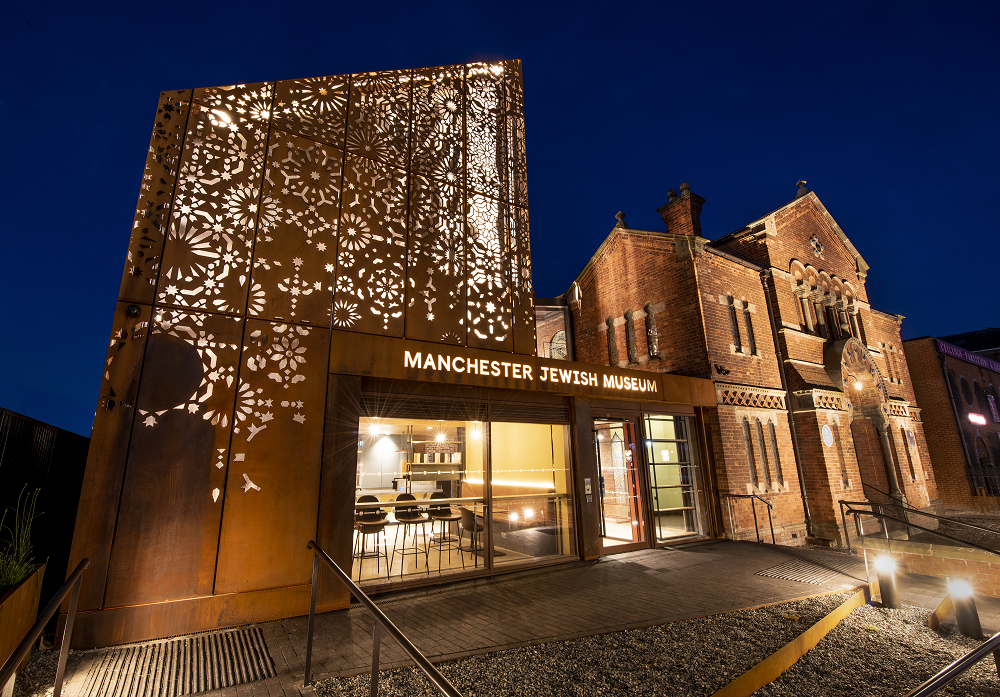Quartets written in memory of lost sisters – Interview with Quatuor Danel
On Thursday, 8 December, MJM will welcome the world famous string quartet Quatuor Danel for the last show of this year’s Synagogue Nights. We spoke to the members about their beloved composers and their upcoming show at our historic synagogue.
The Quatuor Danel was founded in 1991 and has been at the forefront of the international music scene ever since, with important concert performances worldwide and a row of groundbreaking CD recordings.
The quartet is famous for their bold, concentrated interpretations of the string quartet cycles of Haydn, Beethoven, Schubert, Shostakovich, and Weinberg. Their lively and fresh vision on the traditional quartet repertoire has delivered them subsequent praise from public and press. They now also have a residency with the University of Manchester. We’ve recently talked to them about it and what we can expect from their show at MJM.
Hello! It’s great to meet you all. Could you please tell us a bit more about yourselves and the Quatuor Danel? How did it start?
Marc Danel, first violin: As me and my sister were students at Musikhochschule Köln, we got the amazing opportunity to have the members of the Amadeus Quartet as quartet teachers. Naturally we took that opportunity and built first a sort of family quartet (which explains our name) with my sister, my brother and another student.
When we met the Borodin Quartet in a course, Valentin Berlinsky, the cellist, told us we could be a very good quartet, but had to stop everything else to dedicate all our lives to it. The Aldeburgh Foundation has also helped us very much. As a young quartet in residence, we decided to follow Valentin’s advice, and that’s how we started the quartet, with Gilles and my two siblings in June 1991.
We started at full speed straight away, playing, among other pieces, all Shostakovich quartets during our first quartet year.
Vlad , highly recommended by his teacher Vlady Mendelssohn, joined the quartet in 2005, and Yovan, who had been a friend for decades and played in two very famous quartets before, in 2013.
During all these 31 years, we have performed almost 3000 concerts, travelled in 40 countries, recorded almost 30 CDs and we are very happy to start our 18th season at Manchester University.
Quatuor Danel
I know that Russian composers have a special place in your repertoire. Who are your favourite composers and what is it about them that fascinates you?
Marc Danel, 1st violin: To name our favourite composers would be as difficult as to choose between your closest friends or family members, but we can say that three composers have been accompanying our quartet life from the start and we were performing their cycle of quartets numerous times: Beethoven, the milestone of the quartet repertory, Shostakovich and his less known but not less talented close friend Mieczyslaw Weinberg.
Russian music has also always been a very central topic in our career, starting from our very first cycle of all Shostakovich at Aldeburgh in 1991.
In romantic Russian music, such as Tchaikovsky’s, Borodin’s or Glazunov’s, we find this very refined balance between lightness, passion and depth that for me is the hallmark of Russian culture of the 19th century.
The Soviet era, symbolized by the 15 quartets by Dimitri Shostakovich, is of a very different tone, very deep but in a more « realistic » way, speaking nevertheless directly to the soul like a human being speaking to other human beings.
Prokofiev with his more elegant way and the Polish-born Jewish Soviet composer Mieczyslaw Weinberg are also deeply speaking to the human soul.
You have a residency at The University of Manchester. Can you tell us a bit more about it? What does it include?
Vlad Bogdanas, viola: Our residency at the University actually started in 2005 when we succeeded to the Lindsay Quartet. We perform a programme of lunchtime and evening concerts at the Martin Harris Centre throughout the academic year. On top of that, we participate in workshops, mainly with the composition students. We play their pieces and discuss writing for string instruments.
We also take part in seminars with the world class musicologists of the music department and we have a special connection with the composition teachers. We regularly perform music they write for us. Some of it can be heard on the album New Sounds from Manchester. Playing the music of our amazing colleagues at the University and working with them is a precious source of inspiration.
MJM Synagogue, Philip Vile 2021
What does it mean to you to be performing at Manchester Jewish Museum and in the 1874 Spanish & Portuguese synagogue?
Yovan Markovitch, cello: After all these years spent in Manchester for our residency, we are very honoured to be invited to your museum!
Playing such a program of Jewish composers in the synagogue is very symbolic:
The music of Felix Mendelssohn and Moishei Weinberg, both great artists, so delicate and so powerful at the same time, will resonate in harmony with the cultural vibration of such a historical place!
We are also very happy to discover the museum and to share this great music with a new audience!
What can the audiences expect from your performance?
Yovan Markovitch, cello: We are going to play two works related to one same topic: the memory of the two composer’s sisters.
Felix Mendelssohn’s sister Fanny died unexpectedly while still young and he has been devastated. This quartet op 80, his last one, is like a scream. We hope the audience will feel this despair and also the beautiful tenderness of some rare moments. This work is one of the most emotional of the great genius who has been classified as the most classical composer of the romantic period, but so romantic in that piece!
Moshei Weinberg lost his sister and his parents while leaving Poland and escaping the Nazis. If Mendelssohn wrote his quartet just after his sister’s death, Weinberg wrote it a long time after, in 1981. The piece is a different approach, with more distance, less tragic. But still with a strong character and a lot of nostalgia. We can also hear reminiscent klezmer music, maybe the audience will feel it too!








